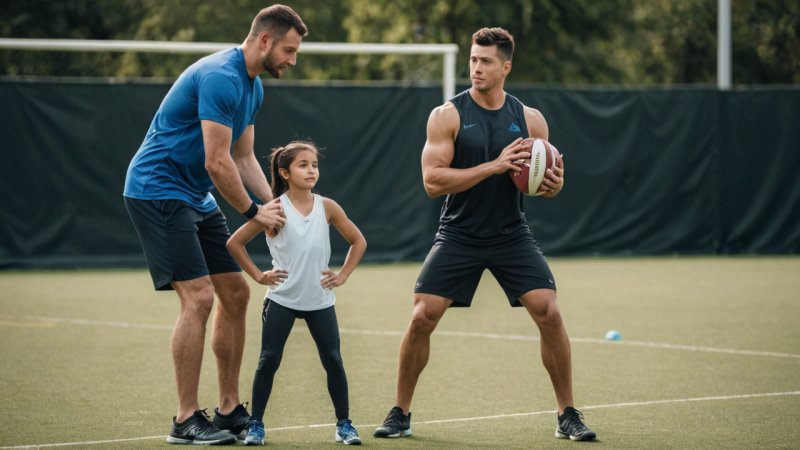In the world of athletics, safety is paramount. Athletes must navigate the physical demands of their sport while minimizing the risk of injury. Two critical elements that contribute to an athlete's safety are family support and professional coaching. Both play significant roles in an athlete's journey, but they offer different advantages and perspectives. This article will compare these two vital sources of support, highlighting their pros and cons, and how they impact athletic safety.
Understanding Family Support
Family support refers to the encouragement, guidance, and care that athletes receive from their family members. This support can take many forms, from emotional backing during tough times to logistical help like transportation to practices and games.
Pros of Family Support
- Emotional Stability: Family members can provide a strong emotional foundation, helping athletes manage stress and anxiety associated with competition.
- Encouragement: Positive reinforcement from family can boost an athlete's confidence and motivation, which is essential for performance and commitment.
- Understanding Needs: Family often knows the athlete's personal challenges and can tailor their support accordingly, enhancing safety measures.
Cons of Family Support
- Overprotection: Sometimes, family members may become overly protective, hindering an athlete's ability to take necessary risks or face challenges.
- Lack of Expertise: While family can provide emotional support, they may lack the specialized knowledge to advise on safety equipment or injury prevention.
The Role of Professional Coaching
Professional coaches are trained experts who guide athletes in their training, performance, and safety protocols. They bring a wealth of knowledge and experience to the table, focusing on technique, strategy, and injury prevention.
Pros of Professional Coaching
- Expert Knowledge: Coaches are typically well-versed in the latest safety equipment and techniques, helping athletes reduce injury risks effectively.
- Structured Training: Coaches can implement structured training regimens designed to build strength and agility while considering safety protocols.
- Objective Feedback: Unlike family members, coaches can provide unbiased assessments of an athlete’s performance and areas for improvement.
Cons of Professional Coaching
- Pressure: The competitive nature of coaching may put undue pressure on athletes, potentially leading to stress and safety risks.
- Limited Personal Attention: In larger teams, coaches may not be able to provide the individual attention needed to address specific safety concerns.
Comparative Analysis
When comparing family support and professional coaching in terms of athletic safety, it's essential to recognize that both can complement each other, yet they also have distinct differences.
Emotional vs. Technical Support
Family support primarily offers emotional backing, which is crucial for an athlete’s mental well-being. Conversely, professional coaching provides technical knowledge that is vital for physical safety and performance enhancement.
Experience and Expertise
Professional coaches typically have formal training and experience in sports safety, which can be invaluable. In contrast, while family members may lack expertise, their life experience and personal insights can foster a supportive environment.
Personal vs. Professional Relationships
Family relationships are built on love and trust, creating a safe space for athletes to express their fears and concerns. Professional coaching, while often more structured, may lack the same emotional intimacy, but can offer clear, objective advice.
Potential Conflicts
There can be conflicts between family expectations and coaching advice. For instance, a family member may want an athlete to pursue a less risky sport, while a coach might encourage pushing boundaries for growth. Effective communication is essential to navigate these potential conflicts for the athlete's safety.
Conclusion
In conclusion, both family support and professional coaching are crucial components of athletic safety. They each offer unique advantages that can enhance an athlete's experience, performance, and well-being. Family support provides emotional stability and encouragement, while professional coaching delivers expert guidance and structured training. The ideal scenario for an athlete is to have a balance of both—an engaged family that understands the sport and a coach who emphasizes safety while pushing the athlete to excel. Ultimately, recognizing the value of both can lead to a more holistic approach to athletic safety and performance.






